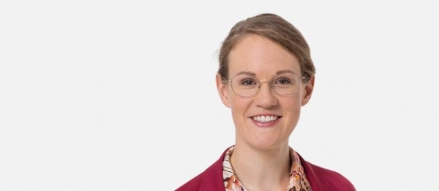
The future of VAT: Eliminating weaknesses
The future of VAT: Eliminating weaknesses
Modern business models
The digital revolution has massively changed business models. One of the consequences of this is that the boundaries between supplies of goods and supplies of services are becoming blurred. In addition, supply elements are increasingly being combined, so that the average consumer must decide whether a complex supply exists and, if so, which element is predominant. This leads to increasing uncertainty. The current concept of supplies of goods and supplies of services is reaching its limits here. Special rules have been introduced in certain sectors, e.g. for vouchers, online events and the platform economy. However, it is worth asking whether the concept should not be fundamentally simplified. The VAT expert group sees a need for improvement in the following areas, among others:
- The status as a taxable person is often difficult to determine according to the traditional criteria. In future, automatic verification should be possible , e.g. in a procedure in accordance with the eIDAS Regulation.
- A revision of the place of supply rules for electricity is necessary, as the current link to the place of consumption does not take e-mobility into account.
- For repair work, Member States currently apply different criteria to distinguish between supplies of goods and supplies of services. This problem could be tackled at the root by fundamentally reforming the concept of supplies of goods/ services.
- What constitutes a fixed establishment and what does not is the subject of extensive case law. This should be translated into a binding concept of practical requirements that precludes the need for taxpayers to make subsequent adjustments.
- In many of today's business models, the customer's consideration is not money, but the data that they disclose by using a service. The treatment of such models urgently requires clarification.
- Other areas requiring clarification are transfer price adjustments, discounts and free transactions.
Input VAT deduction
Through its case law, the ECJ has made a significant contribution to recognising the principle of neutrality through a comprehensive right to deduct input VAT. However, the requirement of a direct and immediate link between an input supply and taxed output transactions should be reconsidered so that an indirect link also entitles the taxable person to input VAT deduction. Other points include the following:
- The rules on the correction of bad debts currently differ in the Member States and need to be standardised.
- The OSS declaration should make it possible to offset input VAT.
- When goods are destroyed, lost or stolen, modernised regulations are needed.
Modernisation of tax exemptions and special regimes
Under certain circumstances, businesses can be worse off with tax exemptions than without, because they have no input VAT deduction. This can ultimately make supplies more expensive, which is not only a disadvantage for the recipients, but also impairs the competitiveness of the supplier. Among other things:
- In the important financial services and insurance sector, the EU Commission has initiated further studies on the possible taxation of these services, which the VAT Expert Group welcomes.
- In the area of non-profit status, it should be reconsidered whether certain organisations with a high degree of organisation, such as trade unions, are still correctly classified there.
- As far as the VAT group is concerned, an extension to cross-border situations, among other things, would be helpful for businesses. The VAT Expert Group also addresses the fact that the case law of the ECJ and the lack of progress in legislation at the EU level have worsened the situation for businesses.
Sustainability
There are also opportunities to improve the climate in the area of VAT. For example, climate-friendly products could be taxed at a reduced rate. Even if measures outside the VAT system are probably more effective, VAT law should at least not hinder positive developments. For example, in the case "Finanzamt X" (C-207/23), in which the operator of a combined heat and power plant made the heat generated available to other entrepreneurs free of charge, he had to pay VAT on a free transfer, which he would not have had to pay if he had simply allowed the heat to escape. The existing VAT system is, moreover, based on the idea of final consumption, whereas sustainable economic activity must be thought of in cycles. A modern VAT system must keep pace with this and develop new concepts for second-hand goods.





